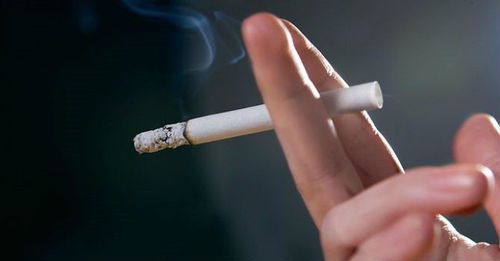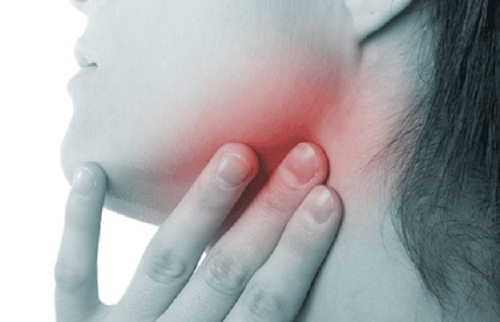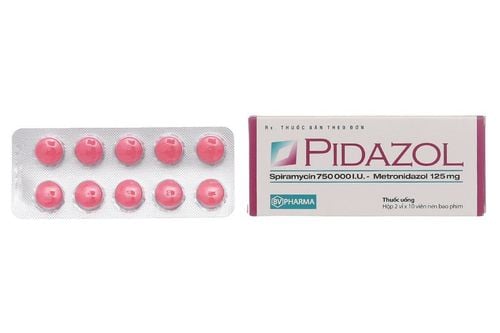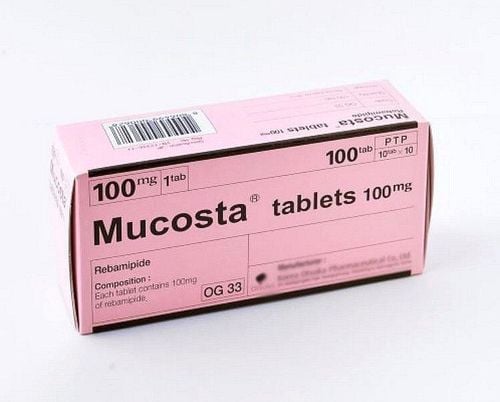This is an automatically translated article.
Dry mouth has been shown to affect oral health and general health of people. So where does dry mouth come from, can it be treated? Let's learn about this issue through the article below.
1. Symptoms of dry mouth
Lack of saliva will cause the skin in and around the mouth to become dry, and the lips to become chapped. There may be sores in the corners of the mouth; Dry and rough tongue; The ability to swallow and talk may also be affected.
2. Causes of dry mouth

Due to medication treatment: There are more than 400 medications that can cause dry mouth, including over-the-counter medicines for allergies and colds. Over-the-counter medications for high blood pressure, overactive bladder, and psychiatric medications can also cause dry mouth. Radiation therapy can damage the salivary glands, and chemotherapy can cause the salivary glands to enlarge and dry out the mouth.
Head and neck trauma: Nerve damage from head and neck trauma can lead to dry mouth. Certain nerves transmit signals between the brain and the salivary glands, and if these nerves are damaged, the salivary glands will no longer receive the signal to produce saliva.
Sjogren's syndrome: Dry mouth can be caused by a particular medical condition called Sjogren's syndrome. This is an autoimmune syndrome in which white blood cells attack the lacrimal and salivary glands. Patients with diabetes and HIV may also experience dry mouth.
Smoking: There are many reasons to quit smoking, including dry mouth. Smoking by itself doesn't cause dry mouth, but it does make an already existing dry mouth worse.
Trắc nghiệm: Bận rộn có ảnh hưởng đến sức khỏe của bạn không?
Cuộc sống hiện đại khiến chúng ta vì quá bận rộn mà quên chăm sóc sức khỏe cho chính mình. Ai cũng biết rằng lịch trình làm việc cả ngày có thể khiến bạn kiệt sức, nhưng cụ thể bận rộn ảnh hưởng thế nào tới sức khỏe? Hãy cùng làm thử bài trắc nghiệm dưới đây.
3. Effects of dry mouth on the body
When the mouth is in a state with little or no saliva, it will affect a lot. Saliva helps the body taste and digest food. Saliva cleans away food residue that remains in the teeth and reduces acid levels to help prevent enamel damage.
Due to the lack of saliva to clean leftover food particles, the breath of people with dry mouth often has an unpleasant odor. If you're a woman who wears lipstick, her teeth may be covered with lipstick because there isn't enough saliva to wash it off. Dry mouth can also cause paresthesia in the throat.

4. Some tips for dry mouth
Use sugar-free candies or chew sugar-free gum to increase salivation; Over-the-counter medications can also help relieve symptoms; Drink water regularly to keep your mouth from drying out; Drinking water or milk with meals helps retain moisture and aids chewing and swallowing; Sleep in a room with a humidifier to make waking up more comfortable in the morning; Limit sugary, acidic or caffeinated foods and drinks; Periodic dental visits. See your doctor or dentist if you are experiencing dry mouth, especially persistent dry mouth. If you don't have dry mouth as a side effect of your medication, chances are there's an underlying medical condition that hasn't been detected, like Sjogren's syndrome or diabetes.
5. Prevention of dry mouth
Lack of saliva will cause great harm to teeth. Use dental floss and brush your teeth regularly every day; Gargling with an antiseptic solution is also very effective. Drink water regularly throughout the day to keep your body hydrated.
Please dial HOTLINE for more information or register for an appointment HERE. Download MyVinmec app to make appointments faster and to manage your bookings easily.
Reference source: webmd.com












